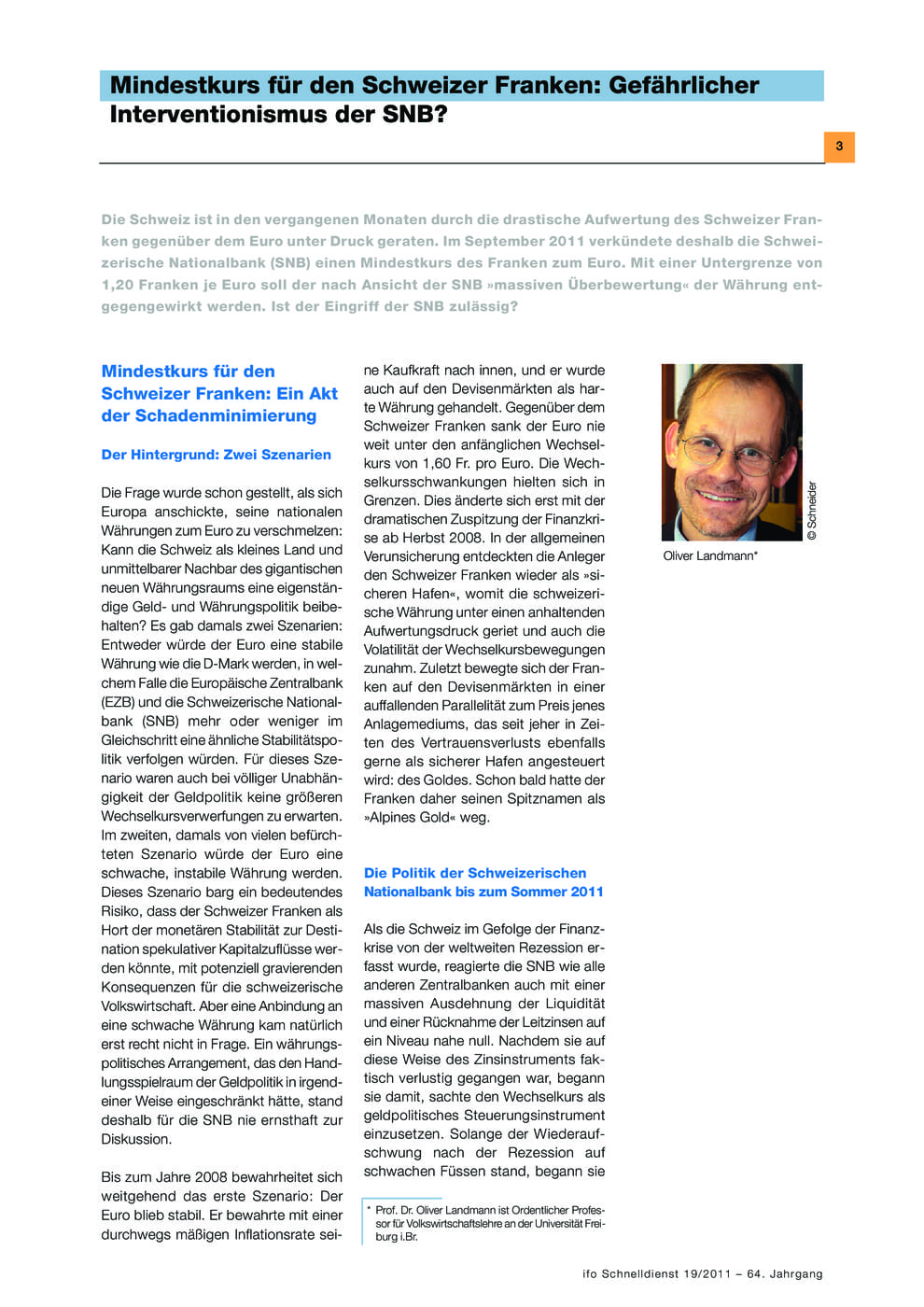Minimum exchange rate for the Swiss Franc: dangerous interventionism of the SNB?
ifo Institut, München, 2011
ifo Schnelldienst, 2011, 64, Nr. 19, 03-16

Switzerland has come under pressure in recent months due to the drastic appreciation of the Swiss franc against the euro. As a reaction, in September 2011 the Swiss National Bank (SNB) set a minimum rate of the franc to the euro. With a lower limit of 1.20 francs per euro, what the SNB terms as the “massive overvaluation” of the currency is to be counteracted. Oliver Landmann, University of Freiburg, sees in this measure the fact that Switzerland, as a small open economy and a non-EU member, is very closely linked with its political and economic environment. This means that the country is affected by all the positive and negative developments in the EU. Therefore, it would be illusory to believe that the difficulties the euro zone is encountering in the current crisis could simply pass by Switzerland. Setting a minimum rate of 1.20 Swiss francs is not a panacea but a “carefully taken measure to minimise the damage”. Gunther Schnabl, University of Leipzig, points out that with this decision Switzerland will regain scope for monetary policy since it will be able to partially liberate itself from “the curse of speculative capital inflows”. However, in the current environment of a glut in global liquidity and the unstable state of European government finance and banks, the exchange rate lower peg is an unsatisfactory solution, because with a fixed exchange rate and rising inflation, the immense euro reserves in the Swiss central bank balance sheet will be devalued in real terms in the long run. Thus, the socialisation of the costs of European sovereign debt and financial crises will be extended to Switzerland. David Iselin and Michael J. Lamla, KOF Swiss Economic Institute at ETH Zurich, assess the introduction of the lower limit for the exchange rate as a success and see the risk of this commitment of the SNB as low. Given the expected low inflation next year, the SNB had enough scope to concentrate on the stabilisation of the exchange rate. Rudolf Minsch economiesuisse, the Swiss Business Federation, sees the establishment of a lower limit for the exchange rate as an emergency measure in extraordinary times. In his view, the SNB is in a position to defend the lower limit in the coming months. During this time it will become clear whether the debt problem in Europe has been decisively addressed or whether the European Union is clearly heading in the direction of a transfer union.
Included in
ifo Schnelldienst 19/2011
in: ifo Schnelldienst, 2011, 64, Nr. 19